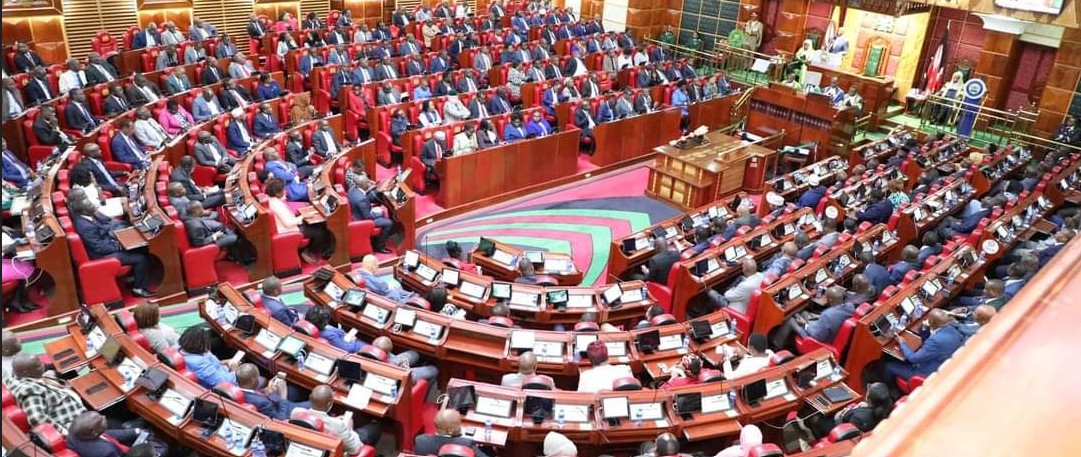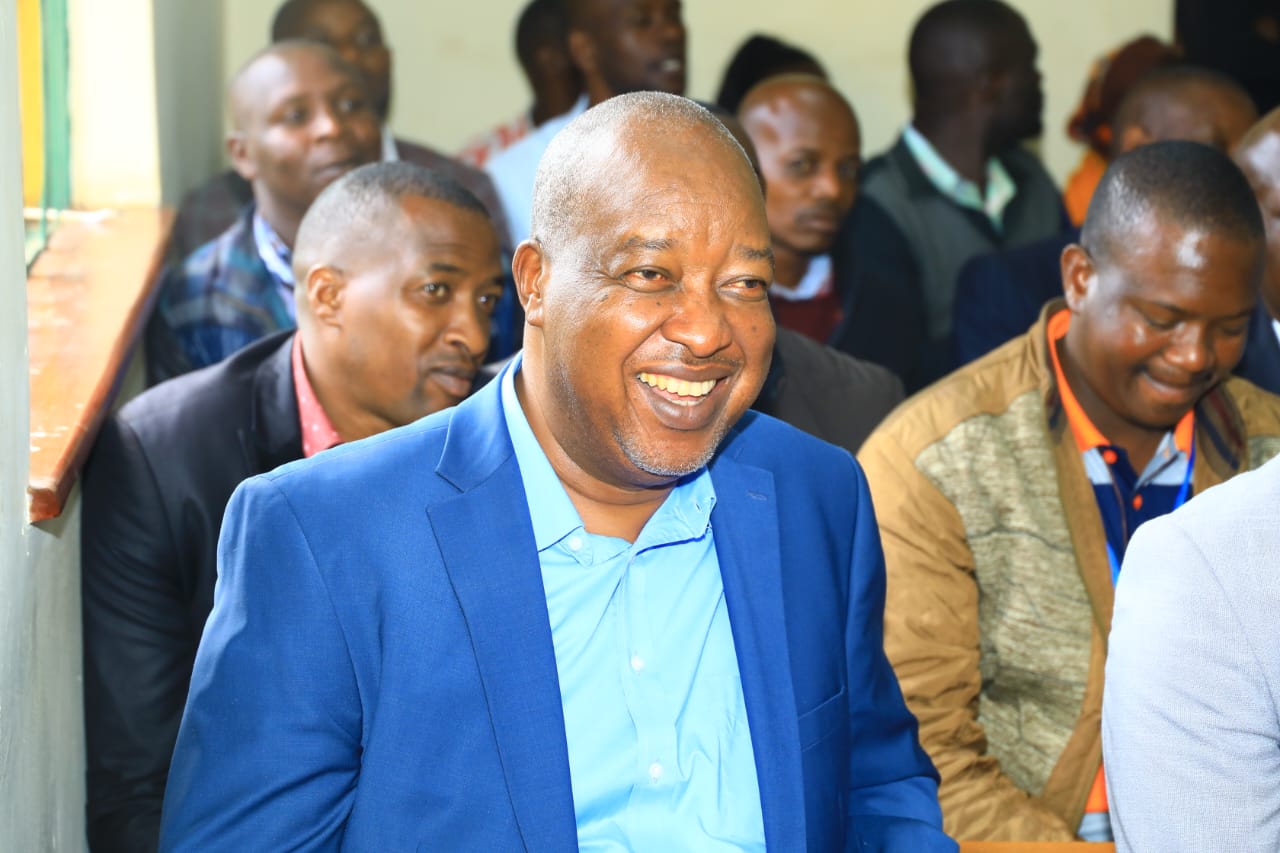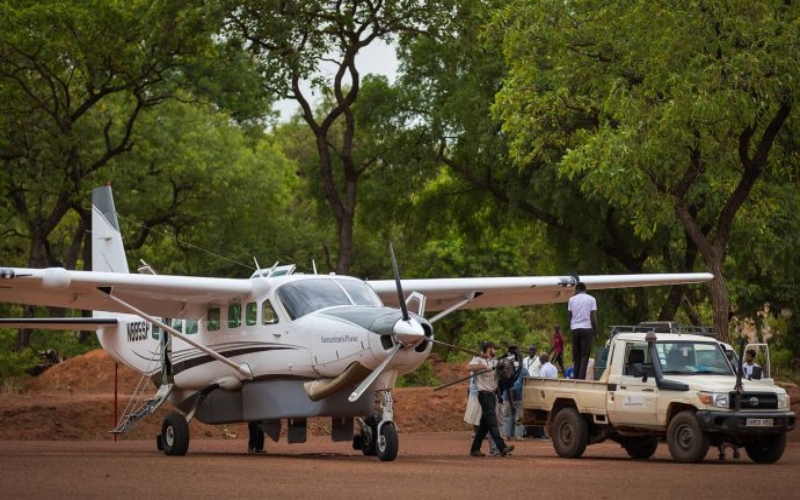Kenya signs Sh350bn investment deals with Japan in bid to revive economy
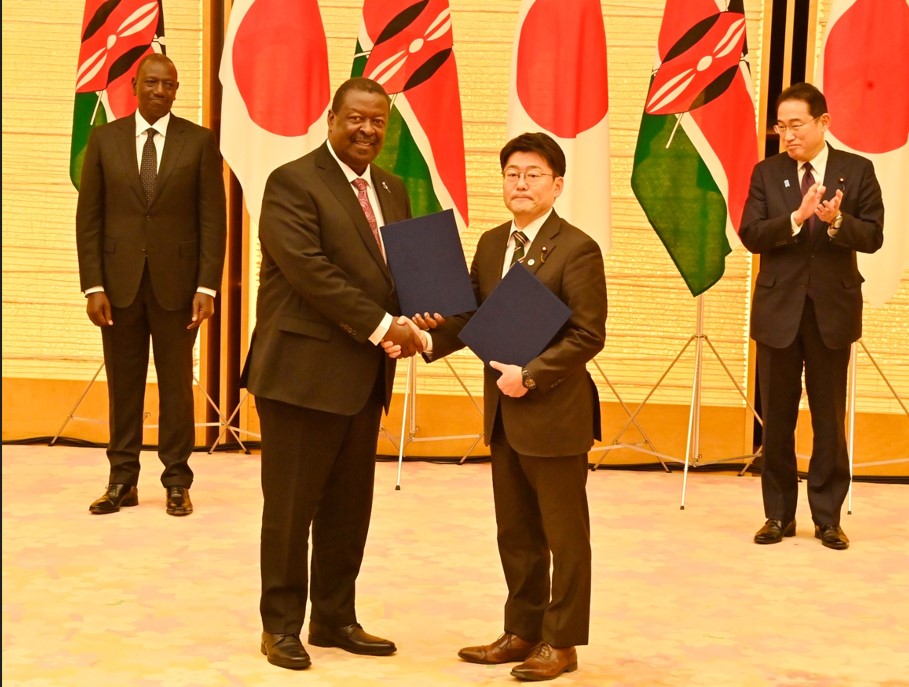
The agreements will support projects and programmes in sectors expected to turn around Kenya's economic fortunes.
President William Ruto has signed investment deals worth Sh350 billion on his two-day state visit to Japan for projects in sectors including energy, vehicle assembly, medical research, security and infrastructure development.
The agreements will support projects and programmes in sectors expected to turn around Kenya's economic fortunes.
More To Read
- Ruto backs IMF partnership as key to Kenya’s debt, economic reforms
- Tough decisions stabilised the economy, saved Kenya from shame – Ruto
- Ruto and Oburu strengthen UDA-ODM alliance after by-election win
- Ruto unveils Sh400 billion mega dam plan to turn North and Coast regions into Kenya's new food basket
- Ruto says 15,000 jobs on the horizon following launch of landmark highway expansion
- Ruto says Kenya can attain first-world status within three decades
In a statement on Thursday, the government announced that the largest projects are the Dongo Kundu Infrastructure Ecosystem and the Mombasa Gateway Bridge, which will take up Sh260 billion.
President Ruto and Prime Minister Fumio Kushida also agreed that Kenya will issue a Sh40 billion Samurai bond in Japan to finance energy and infrastructure projects.
A Samurai bond is a yen-denominated bond issued in Tokyo by a non-Japanese company. The bond is, however, subject to Japanese regulations.
The government said that Kenya also secured Sh30 billion from the Japan Bank for International Cooperation to buy heavy machinery and mechanised assets.
Government Spokesperson Isaac Mwaura also announced that Sh19 billion will be used to construct the Menengai Geothermal Plant and Sh15 billion for the Olkaria Geothermal Development project.
"The projects are a step towards environmental sustainability and economic efficiency. They promise to create several jobs and lower the cost of electricity, benefiting millions of Kenyans and encouraging investments," Mwaura said.
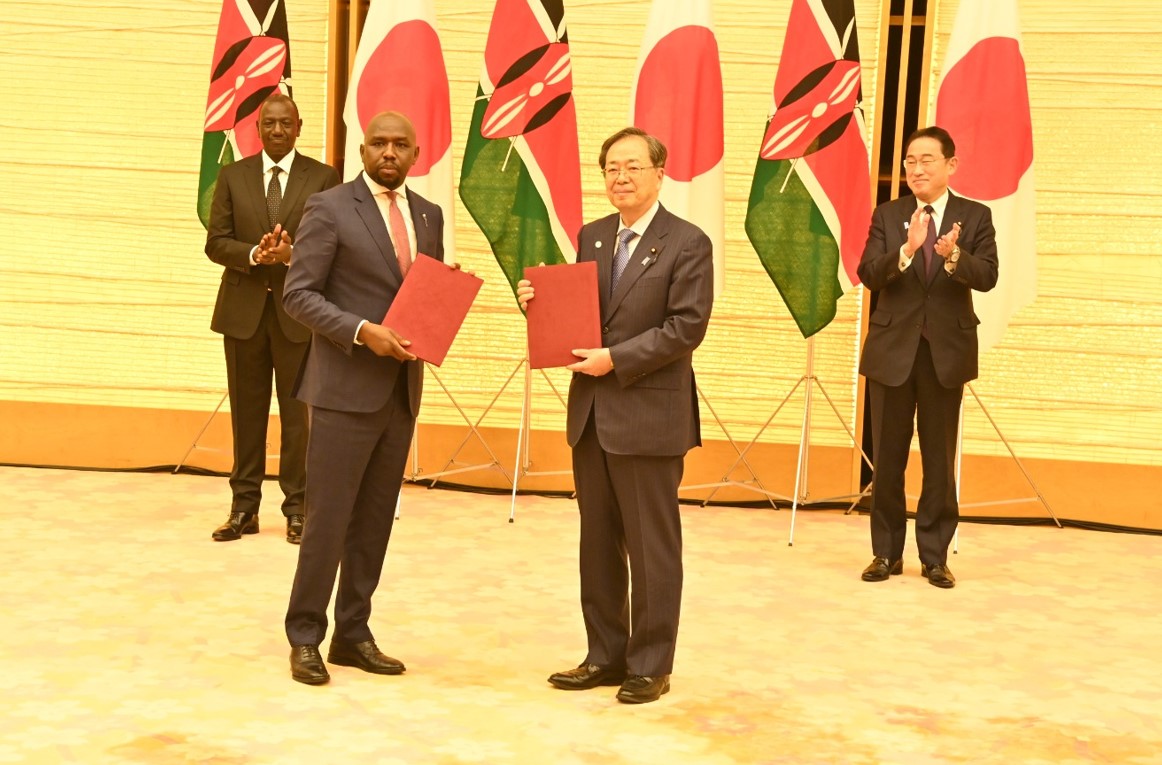 President William Ruto and Japanese Prime Minister Fumio Kishida are pictured with officials from their countries after signing deals for various development projects in Kenya on February 8, 2024. (Photo: State House Kenya)
President William Ruto and Japanese Prime Minister Fumio Kishida are pictured with officials from their countries after signing deals for various development projects in Kenya on February 8, 2024. (Photo: State House Kenya)
To convert Isiolo County into a vibrant resort and tourism destination bustling with activity, Sh8 billion will be used to build a solar energy plant there.
"The [plant] will inject more power into our national grid. It is a cornerstone in transforming Isiolo into a thriving resort county," said Mwaura.
A Sh3 billion investment will go to the Kenya Medical Research Institute (KEMRI) for research studies aimed at finding solutions for diseases such as cancer, HIV/AIDS, and other prevalent conditions, particularly among vulnerable populations at the bottom of the economic pyramid.
Japan will also provide Sh1 billion for the production of medical oxygen for various hospitals.
Some Sh800 million will be allocated to Kenya Vehicles Manufacturers Limited in Thika to support the local assembly of Toyotas, reducing reliance on imports from Japan and lowering production costs.
Additionally, through the United Nations, Kenya will receive Sh320 million in humanitarian aid for people affected by the El Nino floods.
The two leaders also signed deals on cooperation in the ICT, finance and security sectors. An agreement on defence cooperation was also signed, making Kenya the first African country to sign a defence pact with Japan.
President Ruto acknowledged Japan’s support for the completion of Phase II of the Mwea Irrigation Scheme and the National Rice Masterplan.
He urged Japanese investors to invest in Kenya's manufacturing, agriculture, and technology sectors, emphasising that the government's Bottom-Up Economic Transformation Agenda (BETA) has created multiple opportunities.
"President William Ruto underscored the strength of Kenya-Japan relations. This visit not only solidified our bilateral ties but also concluded several pivotal investments," said Mwaura.
Top Stories Today

